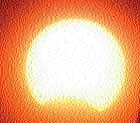

"There are many myths associated with solar eclipse. Many believe that the eclipse causes damage to the embryos. The experiment was aimed at eradicating these myths and create awareness among people," explained Dr Guruprasad M R, a scientist at IISc’s Centre for Ecological Science, to Deccan Herald.
He conducted the experiment along with Channaveerappa, Department of Zoology, University of Mysore. The experiment titled “Effect of Solar Eclipse on Development of Chick Embryo,” was performed during the solar eclipse on January 15 at the IISc. For the trial, 10 native eggs were taken, out of which six were exposed to the solar rays between the recorded eclipse time of 11.16 am and 3.15 pm.
Dr Guruprasad chose chick eggs as it was impossible to conduct the experiment on human beings. Besides, native eggs were economically viable and could be conducted in a controlled evnironment.
The six eggs were exposed for three hours and 55 minutes and four were kept in normal condition in an incubator. The eggs were then allowed to hatch after 21 days. After comparing the new-born chickens, Dr Guruprasad's result indicated that the chicks exposed to solar eclipse rays were as normal as the chickens kept in normal condition. Thereby, implying that solar eclipse cannot harm the development of embryo.
Dr Guruprasad had conducted a similar experiment earlier. “I had performed the same experiment during the annual eclipse in July, 2009. The result in that case too was similar,” he said. However, he felt that the tests needed to be conducted on different animals to arrive at a firm conclusion.
Animal behaviour
The National Centre for Biological Sciences (NCBS) had set up eclipse watch, a nation-wide observational study to check how animals behaved during solar eclipse. The experiment was conducted in 30 cities with participation from about 120 volunteers. The country was divided into five zones, as the eclipse was witnessed in different magnitudes. Some of the behaviours that were observed were, the crowing of sparrows and crows, flying behaviour of crow, kite, pigeon and behaviour of dogs, bats and lizards.
“We chose these selected species, as they are common. Also, their behaviours are easily observable. As it was a total eclipse we thought it would be a good idea to monitor the behaviour of animals. Also, it was part of the larger citizen science programme that we conduct,” said Umesh Srinivasan from NCBS.
The report indicated some changes in the crowing of crows during eclipse, which became intense in zone 1 (where eclipse magnitude was the highest). The crowing was reduced when the eclipse began and increased as the eclipse ended. There was a behavioural change when the crows flew. While crows flew less during the eclipse in zone 1, it ventured into the sky once the sun was in full view. In Kites, there wasn't any significant change and the behaviour pattern of pigeons was inconsistent in all the zones except zone 1, where the flight of pigeons was less. Even sparrows didn't show any noteworthy change.
Unfortunately, the observations on bats, lizards and dogs were insufficient and hence no conclusions could be arrived at.
DH News Service
